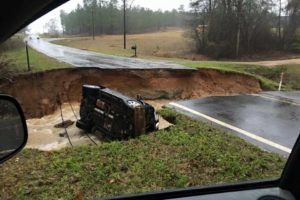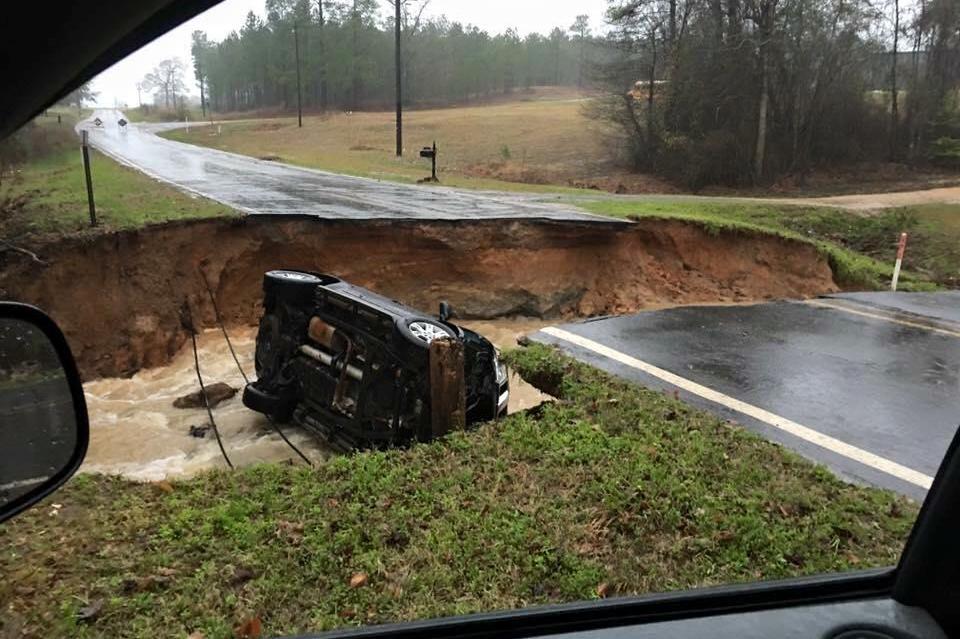At least 40,000 homes were damaged and 10 people killed in the historic Louisiana floods, the governor said Tuesday, giving a stark assessment of the widespread disaster.
Gov. John Bel Edwards spoke at a news conference alongside FEMA administrator Craig Fugate, saying “well over” 20,000 people have been rescued since the flooding began Friday. His office later increased that figure to more than 30,000.
Beginning last Friday, a torrent of about 2 feet of rain inundated the southern part of the state over a 48-hour period, and days later many homes and businesses were still underwater.

While some areas were entering recovery mode, the governor warned new places downstream could see flooding and that officials are still in search and rescue mode.
“I don’t know we have a good handle on the number of people who are missing,” the governor said.
Some residents returned to their flood-damaged homes and businesses for the first time Tuesday and found a soggy mess.
David Key used a small boat to get to his house in Prairieville and said it had taken on 5 inches of “muddy nasty bayou water.” There were fish and thousands of spiders. And mold has started to set in.
“I’m not going to lie, I cried uncontrollably,” he said. “But you have to push forward and make it through. Like everybody says, you still have your family.”
The extent of damage was coming into clearer view. About 40,000 people had signed up for FEMA assistance and eight more parishes were added to the federal disaster declaration, bringing the total number to 12.
In Livingston Parish, one of the hardest-hit areas with about 138,000 people, an official estimated that 75 percent of the homes were a “total loss.”
But Lori Steele, spokeswoman for the Livingston Parish Sheriff’s Office, was upbeat, saying the rescues taking place now are less of a “life-saving nature” and more to help people who were running low on supplies in flooded areas. As the main roads drain, emergency crews were going to be able get hot meals, water and medical supplies to the 25 shelters in the parish.
“We’re tired but today’s a good day,” she said.
Rivers and creeks were still dangerously bloated in areas south of Baton Rouge as people filled sandbags there to protect their houses, bracing for the worst as the water worked its way south. In Ascension Parish, officials said some small towns have already been inundated.
The governor said more than 8,000 people were in shelters, but the number was constantly fluctuating as people arrive and leave.
The slow-moving, low-pressure system crawled into Texas, but the National Weather Service warned the danger of new flooding remained high due to the sheer volume of water flowing toward the Gulf of Mexico.
The latest deaths were attributed to three accidental drownings. No other details were immediately released about how the men died.
One town, Zachary, received more than 2 feet of rain in a 48-hour period that ended Saturday morning. Another, Livingston, got nearly 22 inches over the same stretch. Rivers in the region reached historic highs – occasionally shattering old records dating to 1983 floods.
The 4 feet of water that wrecked James DuPont’s used car dealership in Baton Rouge has finally receded, allowing him to take stock of the devastation Tuesday.
His cars were all coated with a thin layer of dirt. The wooden floor boards in his office are scattered like matchsticks, exposing the wet cement underneath. All of his paperwork is a water-logged mess.
Floodwaters reached the “Open” sign on his rented office, and the 24-year-old fears his business, Louisiana Direct Buy, is now closed for good. He had a dozen or so vehicles on the property, including his personal car, and they all appear to be total losses.
“I don’t have flood insurance so everything is gone,” he said. “I’ll try to salvage what I can. I don’t know if I’m going to be able to open back up or not.”
(Santana reported from New Orleans. Kevin McGill and Bill Fuller in New Orleans contributed to this report.)
Was this article valuable?
Here are more articles you may enjoy.


 Founder of Auto Parts Maker Charged With Fraud That Wiped Out Billions
Founder of Auto Parts Maker Charged With Fraud That Wiped Out Billions  Berkshire Utility Presses Wildfire Appeal With Billions at Stake
Berkshire Utility Presses Wildfire Appeal With Billions at Stake  Portugal Rolls Out $2.9 Billion Aid as Deadly Flooding Spreads
Portugal Rolls Out $2.9 Billion Aid as Deadly Flooding Spreads  Charges Dropped Against ‘Poster Boy’ Contractor Accused of Insurance Fraud
Charges Dropped Against ‘Poster Boy’ Contractor Accused of Insurance Fraud 